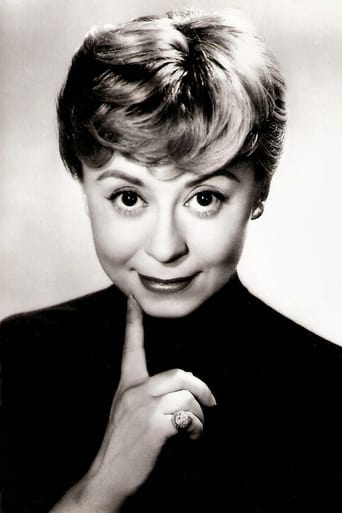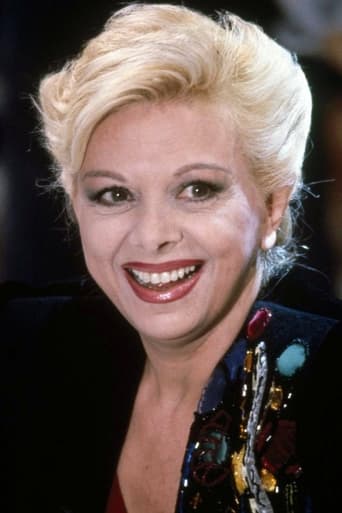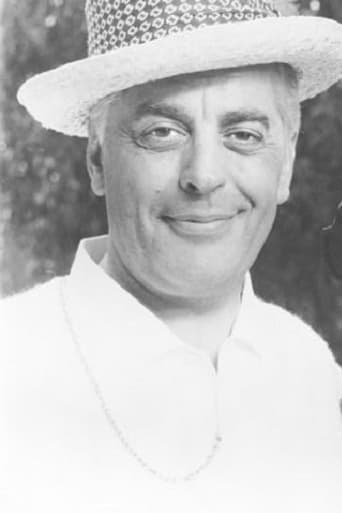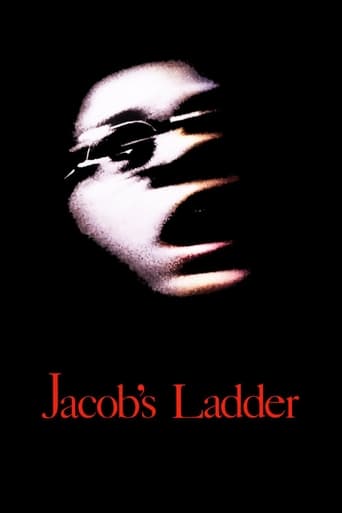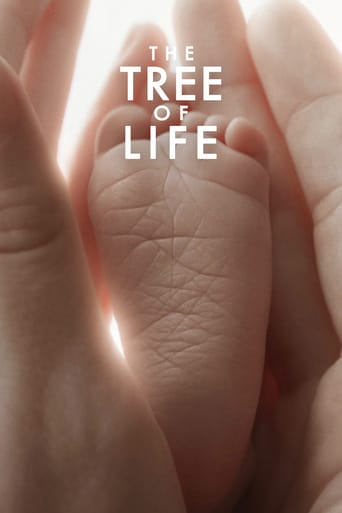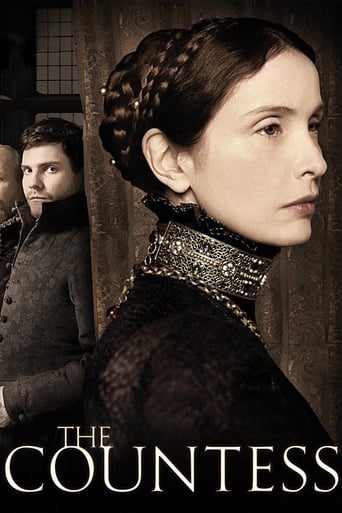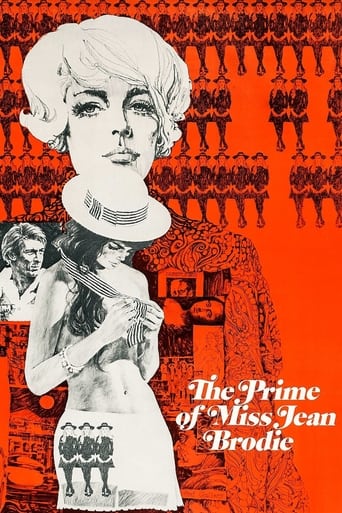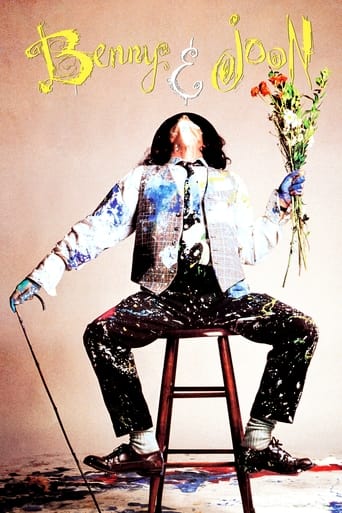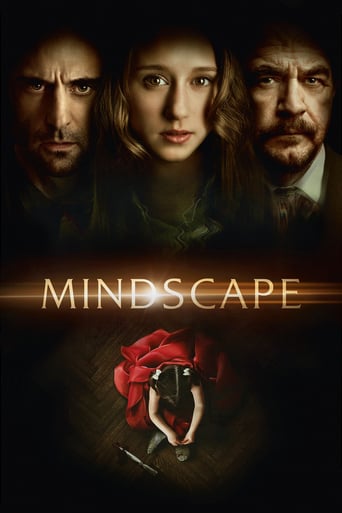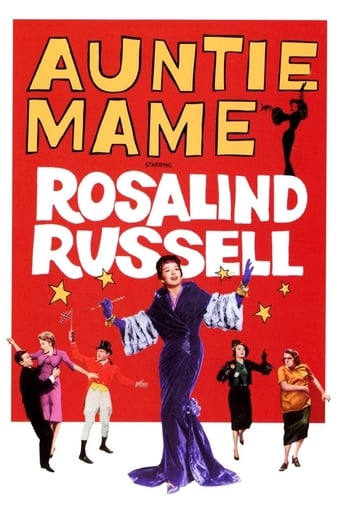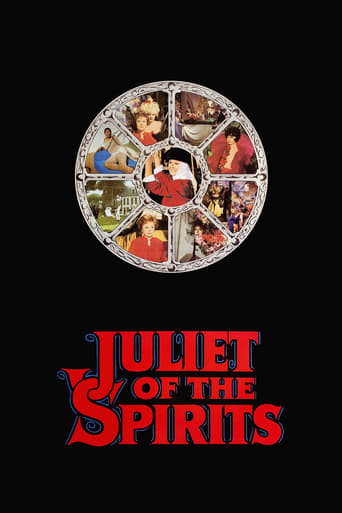
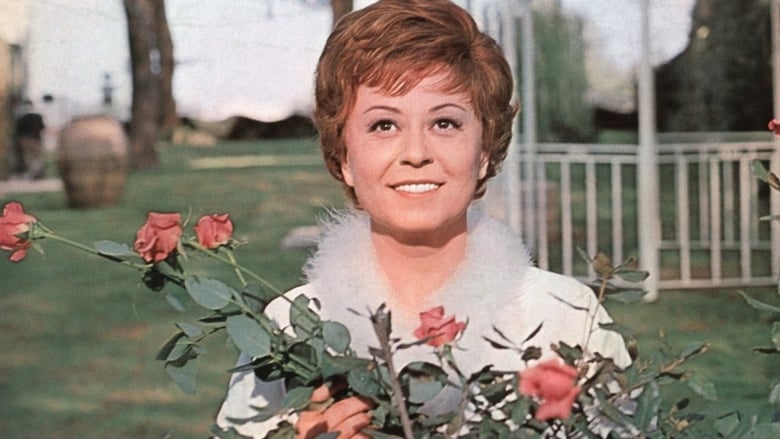
Juliet of the Spirits (1965)
Middle-aged Giulietta grows suspicious of her husband, Giorgio, when his behavior grows increasingly questionable. One night when Giorgio initiates a seance amongst his friends, Giulietta gets in touch with spirits and learns more about herself and her painful past. Slightly skeptical, but intrigued, she visits a mystic who gives her more information -- and nudges her toward the realization that her husband is indeed a philanderer.
Watch Trailer
Cast


Similar titles
Reviews
JULIET OF THE SPIRITS is a fantasy comedy drama film which is designed as a very fun psychoanalytic game. However, this film deals with serious topics, such as fraud in marriage and sexual crisis in middle age. Mr. Fellini has brought a surreal-fantastic view of the bourgeoisie, through a fairy-tale face of a middle-aged woman.Giulietta is a wealthy housewife who constantly fears her husband is cheating on her. She yearns for the quiet intimacy with her husband. However, their eccentric friends are common in their house. To find inner peace, she goes to a psychological session. She begins to explore her subconscious and the odd lifestyle of her sexy neighbor, Suzy, as she attempts to deal with her mundane life. It appears that all of Giulietta's family, friends, and fantasies demand that she loosen up and embrace sexual freedom, yet she remains chaste and dowdy, lamenting over her unfaithful husband...I have to admit that it was difficult to cope with this challenge, which is composed by fantasy and dreams, but its final product is more than clear. Psychological problems of the main protagonist, which, among other things, consist of repressed experiences, are very complex, but not unpleasant. Mr. Fellini did not try to give an answer to her obvious problem. He tries to faithfully convey a painful experience of her youth, which directly influences her decisions in the present.The characterization is not as good as in Fellini's previous films. Mr. Rota has offered a pleasant musical background.Giulietta Masina as Giulietta Boldrini is very good in the role of a confused, deceived and lonely wife. She is one of my favorite face on screen. The whole cast performs delightfully, particularly Sandra Milo (Suzy / Iris / Fanny), a sweet courtesan and Giulietta's guide to sexual freedom.
Juliet of the Spirits makes more sense to me now that I can go back and rewatch and remind myself of earlier, confusing scenes, and characters who appeared and disappeared. Fellini made movies meant for DVR, only he maybe didn't know it that DVR would come to be. I recommend seeing Juliet of the Spirits once every 15 to 20 years. That's how often I've seen it. It is all about maintaining your dignity as you age and the world goes crazy around you, everyone trying to retain some piece of their former youthfulness in clownish and ghastly ways, while Juliet, the amazing Mrs. Fellini, walks through live and gazes upon it true to yourself. Spoiler alert: the last scene, when Juliet walks out of the fake sets and fake nature of a Fellini picture, and into the reality of an actual landscape (a curated landscape though it is), is timeless, worth watching over and over again.
The 60's were a pivotal period for Fellini where he gained on international stature and self-confidence regarding his artistic talent, but while he managed to create situations I could respond to in his earlier works, the whole time I felt sorry for Guiletta Masina in "Juliet of the Spirits" and I don't mean Juliet, but Guiletta. Guiletta is not Gelsomina or Cabiria, the inspirational misfit who carries a whole film, embodying its emotional core. Guiletta is unusually passive, like carried away by the decadence of the high-class society she lives in, and much more, being probably the least desirable female character from the casting: two realities she can't do nothing about them. I understand the point was to make her look like an outcast, but even within the whole story, something was odd in her character. She was like prisoner in a dream that is not even her own, the dream of her husband, another Fellini's fantasy, using his wife as a ... sorry, for the term, as an excuse. I respect and admire Fellini, but I'm only speaking out of my love for Guiletta Masina, who looks particularly unhappy all through the picture. She creates a disturbing contrast between the dazzling colors that Fellini obviously experiments with a certain delight (it was his first feature film in color) and the dark torments filling her heart with an angry frustration, even more frustrating because she's resigned to keep her grieves silent. But her sad eyes convey this feeling of abandon, of being reduced to a negligible entity by her philandering husband Giorgio. Of course, this is not to say that Masina wasn't "good", her performance fitted the film's subtext, but something was cruelly lacking in her character, it's just as if her soul had no passion whatsoever. She was passive, had her share of disturbing visions, lyrical envies and mystical temptations but I'm sorry, I'm a guy, I'm 30 and I'm sure a woman like Juliet wouldn't have these sort of visions, but Master Fellini would. Damn, I can't believe there would be another film making me talk like a feminist, the first one was "MASH", but this one is much worse because it was presented as a sort of feminine version of "8½", where we'd discover the subconscious of a woman, and that her name is Guiletta leaves up no doubt that she's meant to be the alter-ego of Masina. But what's the deal with a woman capable to talk to some spirits, hiding her most repressed secrets, and being pushed to fulfill her own dreams when she only dreams of peace and stability? The movie could almost pass itself for an introspective journey into the inner torments of middle-aged bourgeois housewife, but this is too cerebral for a Fellini film. And I'm only saying this because if there is one thing I learned from Fellini, it is that he's an artist, a man of images. And looking at the images, I have no doubt this is Fellini's own fantasy speaking, and it's so upsetting that I tend to see Fellini as the alter-ego of the unfaithful Giorgio, Mario Pisu even looks like a clone of Guido, Marcello Mastroianni in "8½" who was supposed to be an alter- ego of Federico Fellini. Indeed, "Juliet of the Spirits" strikes by a dazzling and beautiful cinematography in color, but that's no surprise since the images speak more in Fellini's film than any intelligent or constructive idea. And in "Juliet of the Spirits", Fellini's fans would not be disappointed, they have their share of Fellinian imagery: the circus parades, people dancing in unison, women with voluptuous bodies, curvy forms and sensual lips awakening our most vicious appetites. At first, it pleased my eyes, then it puzzled my mind, then I finally got it and could watch the film, quite relieved: "Juliet of the Spirits" is a MAN's film. It says more about Fellini's personal fantasies than anything about both Juliet and Guiletta combined. Not that it bothered me or prevented me from appreciating it, but then the figure of Masina with her sad look, and resigned face killed some of the enjoyment. I even pitied her more than Juliet, because at least Juliet was still a character. Fellini is not just an artist, he's a complete Mediterranean hedonist, a man of flesh, body, sweat and music, sensations, fruits and wine, the sangria is made of both and tastes like the incarnation of Fellini's sensuality. In contrast, Juliet is a woman who drinks water, she likes transparency, serenity ... but water is also synonym of platitude, which in the context of the film, is synonym of dullness. The word 'Spirits' implies the greater contrast with her husband who's not turned on by things from the other side, but a woman like Juliet, who looks almost asexual with her elf-like looks can be associated to this world. I'm not diminishing Juliet at all, after all, she's classy and elegant and the only character with redeemable qualities, but it's pretty clear Fellini made her look diminutive compared to the other women, hell, she's towered by every one in the film, including her mother and sister. I'm not discussing the artistic value of the film, arty at its best, and if only for being the first Fellini in color and the last to give a prominent role to Guiletta Masina, it deserves one, two, as many viewings as it'd take. But this is not "La Strada" or "Nights of Cabiria", it's more of a colored "8½" using a woman as an excuse. As Fellini's film, it's a great one, but just because it was supposed to be a gift to Masina, to be a film about her, I can't regard it with the same passion. Well, I guess the appreciation of "Juliet of the Spirits" can be translated into one dilemma, to which sensitivity do you most relate to: Fellini's or Guiletta's?
A reincarnation of the Buddha is said to have described himself as being, "like the moon upon the water...a reflection. Think of me as your self." He said. Many ancient sages have spoke and been written of seeing The One, the holy God of eternity while looking, gazing, or meditating into a river or pond. For just as God separated the light from the darkness. Fellini too has created his own deep symbolic reflections of the Unfathomable One. Some say that this film, 'Giullietta degli spiriti' is the feminine partner of Federico's previous film 8 1/2. 'An Ode To No One', and 'An Ode To One'. Like two mirrors, the two films reflect the Eternal Lovers in Their breaking, and in Their embrace. Fellini's dialogue and metaphors show a great understanding of The Self, The Divine Marriage, The Sacred Mystery. Fellini is one of the few modern artists who greatly understood the purpose and very nature of art itself. All art imitates life, sure, but human life also is merely an interpretation of that which is truly real. It is obvious by Fellini's work that he himself created his art in order to become more real, to become closer to truth. He created in order to see with more depth and to share this with others. Fellini undoubtedly understood the logic in the seemingly illogical words of the great William Blake when he said "If the doors of perception were truly cleansed, everything would appear as it truly is - infinite.". Fellini understood that all art imitates life, but even more so, he understood that all art imitates the Divine. He also understood that only through this kind of conscious introspection can one become closer and closer to our own True Infinite Nature. People who do not follow spiritual disciplines, or who do not know the work of Carl Jung, or who do not have a good understanding of ancient sacred scripture, will likely miss much of the depth in this film. However that is not to say that those people still won't enjoy it. This is the work of a Divinely inspired genius. Some watch this film and are dazzled by the great colour and flamboyant spectacle of it (And why wouldn't you be?), however truly it is the interweaving of dialogue and relationships that speak even louder than the amazing visuals. "For those who have ears, let them hear!"10/10


